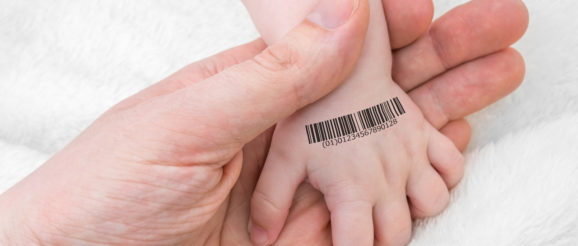Why lack of trust in science and tech is like “putting the brakes on the Ferrari” of innovation and progress – The Fifth Estate

Tomorrowland19 – I, human: Daniella Traino is a data and cyber security expert with “a view to creating a future I actually want to live in.”
Traino, who’s worked with CSIRO’s Data61 and consulted to Defence, is lined up to speak at The Fifth Estate’s Tomorrowland event on 31 October. Titled “I, human”, this all day symposium is about leveraging human creativity and the mind-boggling potential of data and technology to build a better future – one that serves people, and not just robots.
Fortunately, Traino is no stranger to the ethical dilemmas facing the digital revolution.
She says it’s important to see both the opportunities and challenges afforded by technology, and that too often people focus on just one or the other.
The issues around data ownership, rights and control is a good example. Although data can be used to make our lives better, such as helping public transport run more efficiently, it can also “create inequality in the social fabric.”
One example is insurance companies gaining access to employee health data and charging premiums accordingly. This data may initially be captured with the good intentions of making workplaces healthier, but the employee inadvertently ends up worse off with higher insurance premiums because they have been identified as unhealthy.
Traino’s view is that the user or the consumer – the human – should always decide what data goes where, and for what purpose.
“There should be a contract between the two [parties], a contract to say ‘if I share this information I should get utility back, there must be something in it for me because you are making something from this’.”
In the built environment, Traino says there’s “a huge opportunity to change our world for the better” thought the interconnectedness of roads, traffic lights, buildings and other infrastructure.
But without the appropriate hygiene in place, she can also see surveillance problems arising.
We need to keep asking ourselves what it means to be human
As we continue to digitise every component of our lives, it will be crucial to keep coming back to the “essence of humanity” by continually asking what it means to be human.
Traino says that social resilience and community are the elephants in the room in the conversation about digitalisation.
“How do we build community through the built environment? It used to happen in the suburbs and cities but now it isn’t happening, it’s much more introverted, much more device reoriented now.
“Will it come to a point where people will feel more comfortable interacting with computers and machines?”
Preparing for real artificial intelligence
True artificial intelligence, which is a computer that mimics the human brain, is a long way off.
But that doesn’t mean we shouldn’t already be thinking about what happens when AI arrives.
As a society, Traino says we need to be asking questions about what we intend to do with this technology.
“At what point do we give it the vote, at what point do we say we don’t need human interaction here and are comfortable with it operating on our behalf?”
She says that lot of new technology starts with a mission to “do good”, but “a segment of the community will think of ways to use them for nefarious purposes.
“So we have to think about both, so we’re not dismissing the opportunity to do good and change our lives but also realising not everyone thinks the same way.”
Ensuring technology does good
From the community building these technologies, there needs to be an awareness that “getting [data] from people comes with a sense of responsibility.”
Step one is having an awareness, and the next step is building trust.
Traino likens a lack of trust in technology and science as “putting the brakes on the Ferrari” that is innovation and progress.
